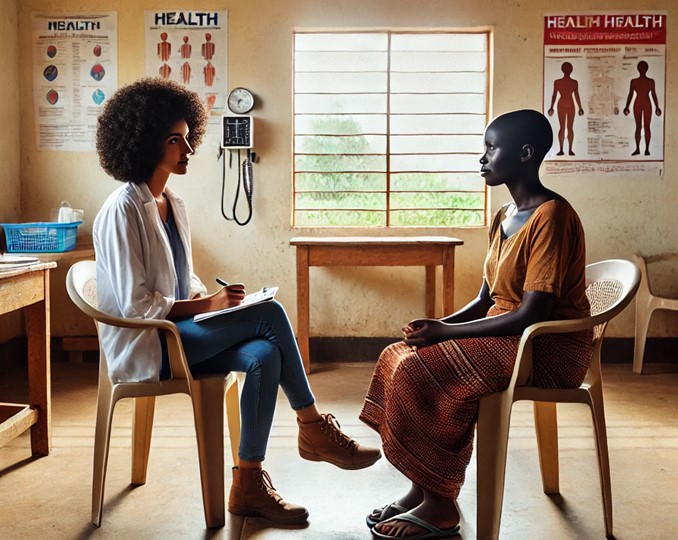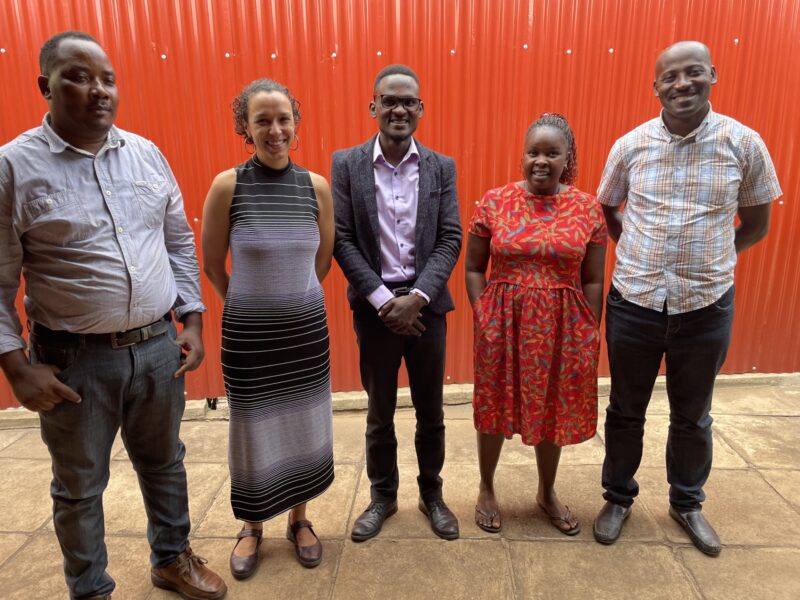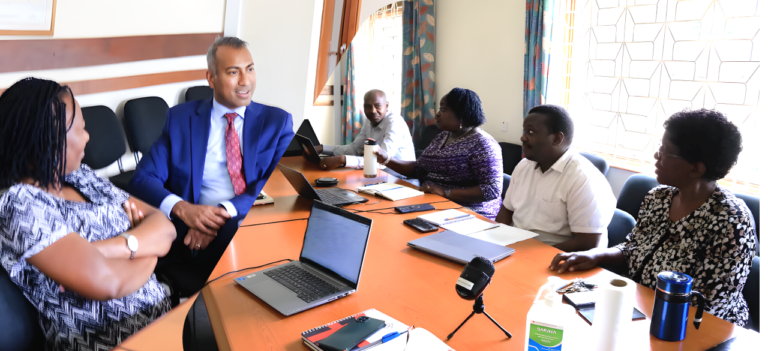Maiya Block Ngaybe, MPH, is a National Institutes of Health Fogarty Global Health Equity Scholar affiliated with the University of Arizona in the USA. The Makerere University Walter Reed Program (formerly Project) (MUWRP) hosted her this past year for her dissertation research. Collaborating closely with MUWRP’s community engagement team, her research focuses on understanding the preferences of populations at high risk of HIV acquisition in Uganda, particularly regarding emerging injectable HIV prevention technologies like long-acting PrEP. The study used a health economics method called a Discrete Choice Experiment (DCE) to measure preferences for a hypothetical future preventative HIV injection. The project was therefore called the HIV DCE study.
The first phase of the study conducted by Maiya explored preferences for HIV prevention products, such as long-acting injectable PrEP and future HIV vaccines. The research team conducted 20 semi-structured interviews with key informants, including HIV prevention experts and peer leaders from key and priority populations. The findings indicated that condoms and oral PrEP remain the most common prevention practices. They also mentioned important barriers to prevention such as stigma, accessibility, and fear of needles. Nevertheless, injectable options were perceived to be more effective than other prevention products and desirable. Participants also emphasized the importance of efficacy, low side effects, and affordability in driving future uptake of an injectable preventative HIV product.

In the second part of the study, Maiya and her team utilized a DCE to assess the preferences for injectable HIV prevention options among 376 participants from urban and peri-urban areas in Uganda. The participants, including female sex workers, young women, and members of the LGBT community, prioritized effectiveness, side effects, and cost most when considering injectable prevention products.
The HIV DCE study highlights the need for policies to ensure affordability and accessibility of these technologies for priority populations. The research also underscores the importance of tailored health messaging and policy interventions to increase the uptake of injectable HIV prevention products. By engaging with a population that is diverse and at increased risk for HIV, this work contributes valuable insights for improving the design and implementation of HIV prevention strategies in Uganda.

Acknowledgements:
We acknowledge the following partners and stakeholders among others for their support of the HIV DCE research project: the HIV DCE Study Participants, Uganda National Council for Science and Technology, Makerere University School of Public Health Research and Ethics Committee, MUWRP Community Advisory Boards, Local Community Leadership.
This research was funded by the National Institutes of Health, Fogarty International Center and Office of Disease Prevention through the Global Health Equity Scholars Fellowship (D43TW010540), the University of Arizona Graduate and Professional Student Council, and the Mel and Enid Zuckerman College of Public Health Dean’s Fund.


